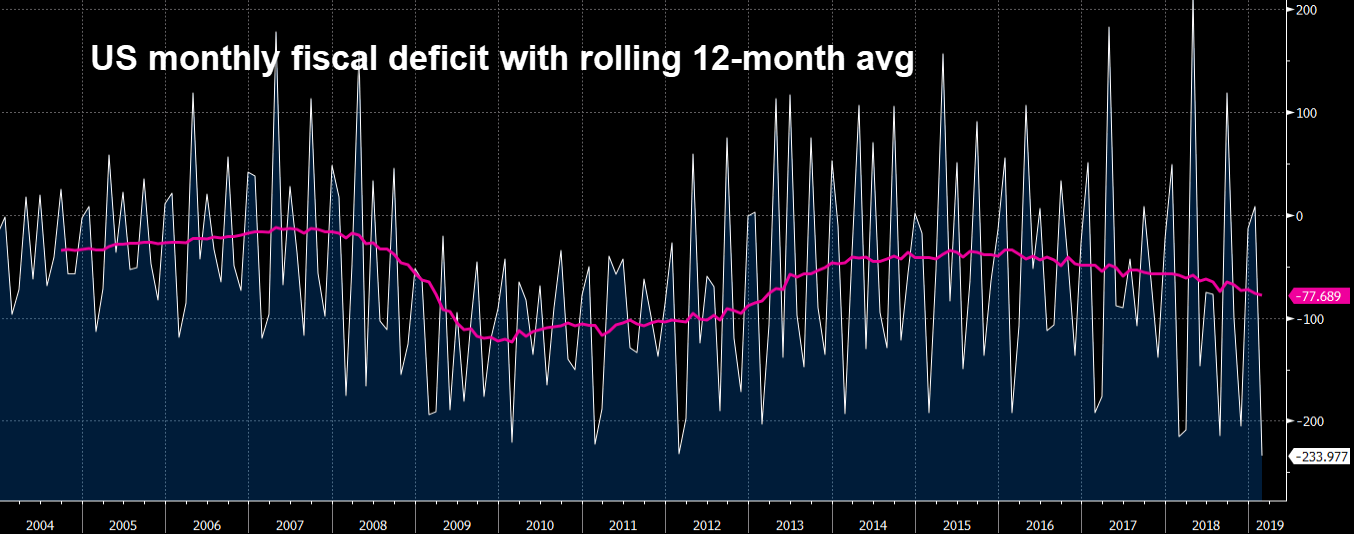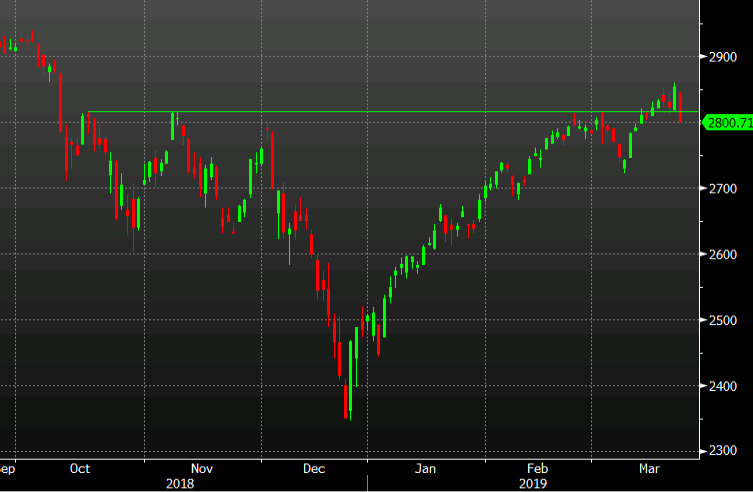The combination of the dovish hold by the Federal Reserve and the eurozone’s miserable flash Purchasing Managers Index casts a pall over the economic outlook. Japan’s flash PMI remained stuck at February’s 48.9, while core inflation unexpectedly eased. Three months after the European Central Bank stopped buying bonds, the German 10-year Bund yield fell below zero for the first time since 2016. Japan’s 10-year yield is near minus eight basis points, the most since 2016 as well. The US 10-year fell to 2.44%, the lows since early last year.
Going into the last week of March, the US 10-year yield has fallen about 22 bp in Q1. German, French, Italian and Spanish yields have fallen 25-35 basis. Portuguese and Australian bond yields have fallen around 45 bp and 48 bp respectively.
The sharp decline in interest rates is a significant development. The precipitating cause of the decline in rates has been disappointing data and signals from officials. ECB Draghi explained that not only had the staff slash this year’s growth forecast to 1.1% from 1.7% at the end of last year but that the risks were still skewed to the downside. In explaining the unanimous decision to offer new long-term loans to banks, he noted that everyone was in the same boat. That seemed to be a reference to the fact that after contracting in Q3, the German economy barely avoided a second quarterly contraction. Italy was not as lucky.
Draghi’s might have well anticipated the flash PMI. The manufacturing slump deepened. The aggregate PMI fell to 47.6 from 49.3. Many, including ourselves, had expected some improvement. The new order component is as far below the 50 boom/bust level as it has been in years. In Germany, Europe’s locomotive, news orders slumped to 40.1, the lowest level in a decade.
(more…)







